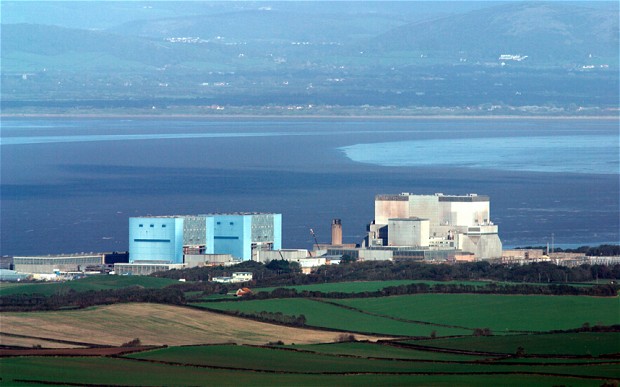|
|
|
|
|
The debate over whether we'll end up paying too much for nuclear energy is irrelevant: we need to keep the lights on 
Nuclear industry at risk over ministers' dithering, experts warn
EDF Energy's Hinkley Point C power station in Somerset Photo: Alamy www.google.co.uk
By Andrew Critchlow
It's forty years, almost to the day, since the start of the Arab oil embargo, which turned out the lights across Europe - and the need to build more nuclear power plants, and reduce our dependence on imported fossil fuels, has never been greater.
North Sea oil and gas is steadily running dry, while it is unclear how much energy drillers will be able to squeeze out of Britain’s rock strata from fracking. Our coal mines fell silent decades ago. Importing liquefied natural gas from the Persian Gulf, or piping in energy from Russia, is risky.
Alternative sources of power generation, such as wind farms, solar and wave, are inefficient and impractical when used on an industrial scale. Renewable energy will barely keep the lights turned on unless that we surround the British Isles with an impenetrable wall of wind turbines.
On the day that the government unveiled a landmark £16bn plan with EDF Energy and its Chinese partners to construct the Hinkley Point C project, the need to diversify our power generation capacity and protect the country from dependence on imported energy is just as urgent now as it was almost half a century ago, in the heyday of Britain’s nuclear power industry.
Ironically, the impact of the Arab oil embargo of 1973 was already factored into the thinking of energy planners back then, as they strove to diversify the UK’s sources of energy. Petrol and energy prices sky rocketed overnight and curfews were imposed after Arab states and the Organisation of Petroleum Exporting Countries turned off the spigots in protest to Western support for Israel in the Yom Kippur war.
Just as with today’s Middle East crisis in Syria, which rattled nerves over the security of supply routes, the embargo came as conventional world energy supplies were struggling to keep pace with demand. At the time, oil demand was climbing at an unsustainable annual pace of 5pc. Prices of energy more than tripled overnight and the rising long-term cost of oil pushed up inflation and weighed on growth for over a decade and still lingers today, with crude continuing to be the benchmark against which all other energy is priced.
According to BP research, oil’s share in global power generation peaked at 22pc in 1973 and is today just 4pc, but despite this fall and the availability of relatively cheap imported natural gas, or billions pumped into the construction of wind farms, energy bills keep rising for consumers.
Failing to invest in new nuclear power generation capacity since Sizewell B was fired up in 1995 has left Britain just as exposed to another supply disruption should natural gas stop and oil stop flowing out of the Middle East.
With natural gas stocks in storage again predicted to test acceptable thresholds this winter, Britain is inevitably flirting with another energy crisis. It should never have got to this point.
A new homemade UK energy crisis will render the debate over whether consumers will eventually pay too much for the electricity produced from Hinkley’s reactors irrelevant.